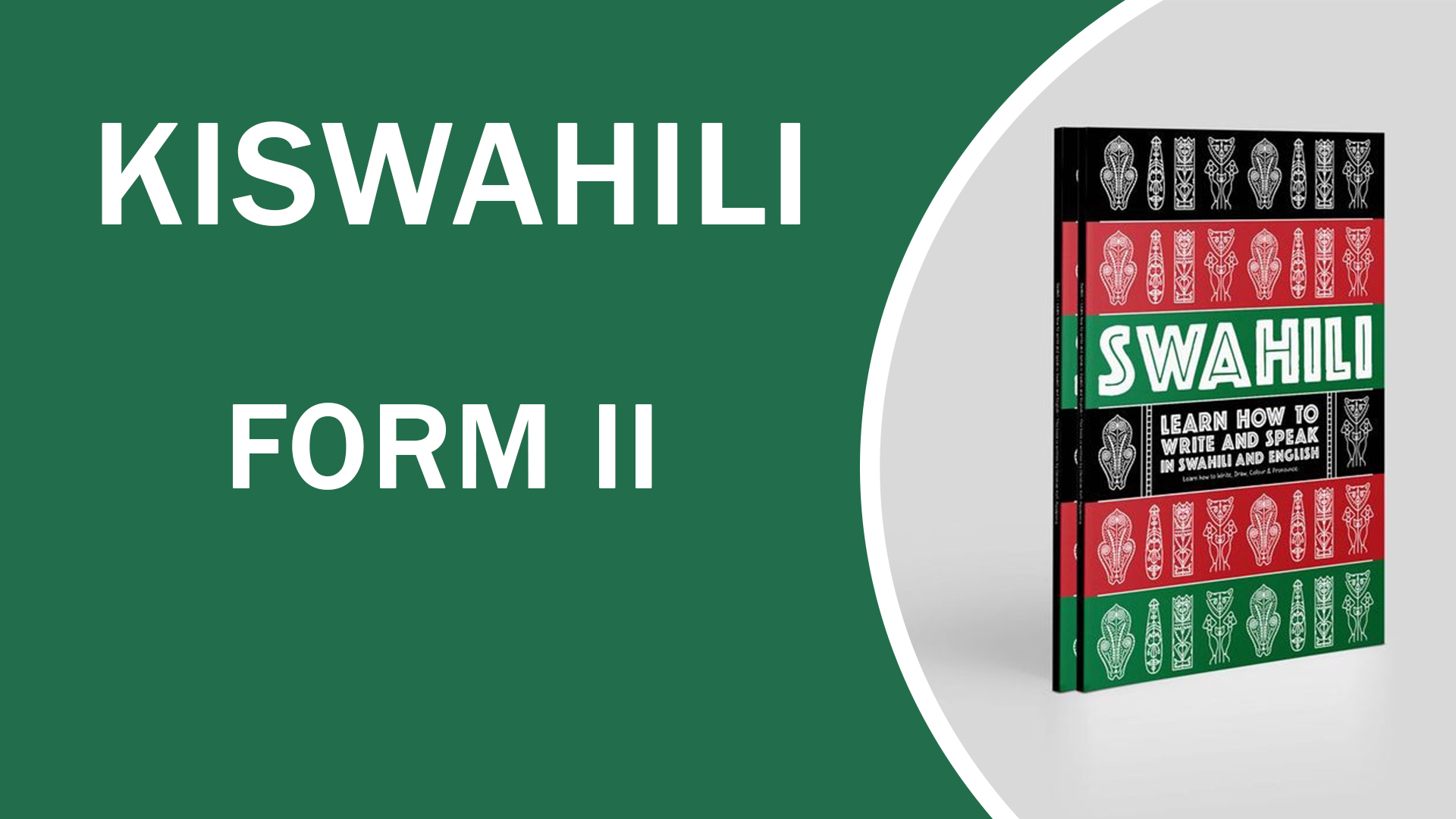Certainly! Here's a well-structured Kiswahili Form II Learning Outcomes section for your Edukea website videos:
Learning Outcomes for Kiswahili – Form II
By the end of the Form II Kiswahili course, students will be able to:
-
Use advanced Kiswahili vocabulary in everyday conversations, including terms related to family, school, and daily activities.
-
Construct complex sentences using correct grammar, including proper use of verb tenses and noun class concords.
-
Understand and interpret Kiswahili texts such as short stories, proverbs, idioms, and poems.
-
Write longer passages in Kiswahili, demonstrating improved sentence structure, use of tenses, and accurate vocabulary.
-
Communicate effectively in Kiswahili, engaging in detailed conversations on various topics such as personal interests, school life, and current events.
-
Enhance pronunciation and fluency, ensuring correct accentuation, intonation, and articulation in both spoken and written Kiswahili.
-
Analyze and discuss Kiswahili cultural elements, such as proverbs, idioms, and traditional narratives, and understand their significance in the Swahili-speaking world.
-
Apply grammar rules more effectively, including complex sentence construction, correct use of noun classes, and mastery of verb conjugations.
These outcomes ensure that students gain proficiency in Kiswahili, setting the stage for even more advanced language use in future courses.
Let me know if you need any further adjustments or additional content!
Certainly! Here's a clear and concise Kiswahili Form II Requirements section for your Edukea website videos:
Requirements for Kiswahili – Form II
To succeed in Form II Kiswahili, students should have:
-
A solid understanding of Form I Kiswahili concepts, including basic vocabulary, sentence structures, and pronunciation.
-
Basic writing skills, including the ability to construct simple Kiswahili sentences and short paragraphs.
-
Good listening and speaking abilities, as students will engage in more complex conversations and dialogues.
-
Knowledge of the Kiswahili alphabet and phonetics, ensuring proper pronunciation and reading fluency.
-
An understanding of basic grammar, including noun classes, verb tenses, and sentence formation.
-
Interest in exploring Kiswahili culture, as the course includes the study of proverbs, idioms, and traditional stories.
These foundational skills will help students build on their Form I knowledge and prepare them for more advanced Kiswahili studies.
Let me know if you'd like the learning outcomes for Form II or any further adjustments!
Certainly! Here's a detailed Kiswahili Form II Description for your Edukea website videos:
Kiswahili – Form II
Form II Kiswahili builds upon the foundation established in Form I, expanding students’ vocabulary, grammar, and communication skills. This course focuses on more complex sentence structures, verb tenses, and advanced grammatical rules such as the use of different noun classes and concords. Students will also deepen their reading and writing abilities by analyzing more detailed Kiswahili texts, including short stories, dialogues, and poems. In addition, the course emphasizes listening and speaking skills through interactive activities, allowing students to engage in more detailed conversations and discussions. Through the study of Swahili culture, including proverbs, idioms, and traditional narratives, students will enhance their appreciation for Kiswahili as both a language and an integral part of cultural heritage.
Let me know if you'd like the requirements or learning outcomes for Form II as well!
